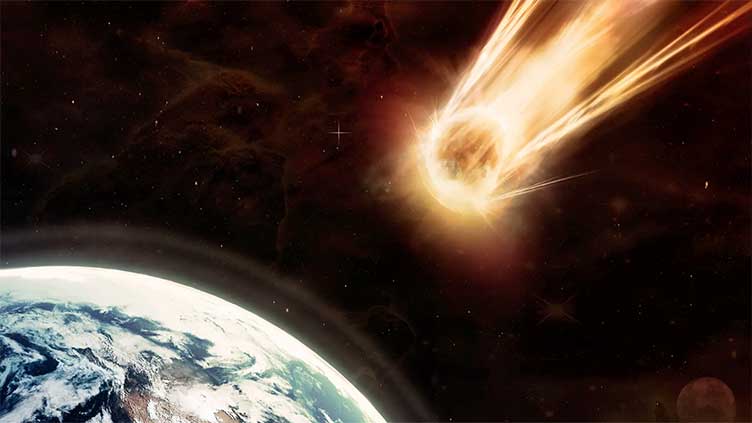Can we nuke an asteroid? Scientists recreate 'Armageddon' in lab

Technology
It's always good to have a back-up plan when it comes to planet-destroying space rocks
(Web Desk) - Imagine an asteroid is on a collision course with Earth. Nasa decides the only way to save our planet is to destroy the asteroid —by nuking it.
If the above scenario sounds familiar, that's because it is the plot of sci-fi action thriller Armageddon. It is also the crux of new research by scientists at the Lawrence Livermore National Laboratory, published this week in the Planetary Science Journal.
In the study, the researchers detail a new tool to simulate using a nuclear bomb to blow up or redirect an asteroid heading for Earth.
An asteroid that collides with the planet could cause catastrophic effects on the scale of the impact that wiped out most dinosaurs and life on Earth 66.5 million years ago.
"While the probability of a large asteroid impact during our lifetime is low, the potential consequences could be devastating," Megan Bruck Syal, LLNL’s planetary defense project lead and study co-author, said in a statement.
This is not an idle thought experiment. NASA has been testing various scenarios to defend the planet from such an event, including carrying out its first test to deflect an asteroid by essentially bumping a rocket into it in 2022.
Known as the Double Asteroid Redirection Test or DART mission, the test was a success: The spacecraft hit a small asteroid, Dimorphos, and changed its orbit around another, bigger asteroid called Didymos, causing a shift in course.
Such a glancing blow could help knock a dangerous asteroid off course from Earth, too, NASA believes.
But it's always useful to have more than one plan when it comes to a planet-destroying space rock headed your way. And that's the impetus for this study.
"In the event of a potentially catastrophic asteroid impact, with sufficient warning time, deploying a nuclear device remains a powerful option for planetary defense if a kinetic impactor or other means of deflection proves insufficient," the researchers state in the paper.
But here's the issue: If you're going to nuke a rock in space, you better have a clear idea of what might happen afterward —especially if you only have one shot. That requires accurately predicting how a nuclear bomb might interact with the asteroid, a deeply complex problem given that asteroids are made up of lots of different materials with varying porosity, density and radiation.
Hence the new modeling tool. It enables scientists to simulate different asteroids and nuclear events to show how they might break up, blow up or deflect if we were to send a device their way.
"If we have enough warning time, we could potentially launch a nuclear device, sending it millions of miles away to an asteroid that is headed toward Earth," co-author and physicist Mary Burkey said in a statement.
"We would then detonate the device and either deflect the asteroid, keeping it intact but providing a controlled push away from Earth, or we could disrupt the asteroid, breaking it up into small, fast-moving fragments that would also miss the planet."


